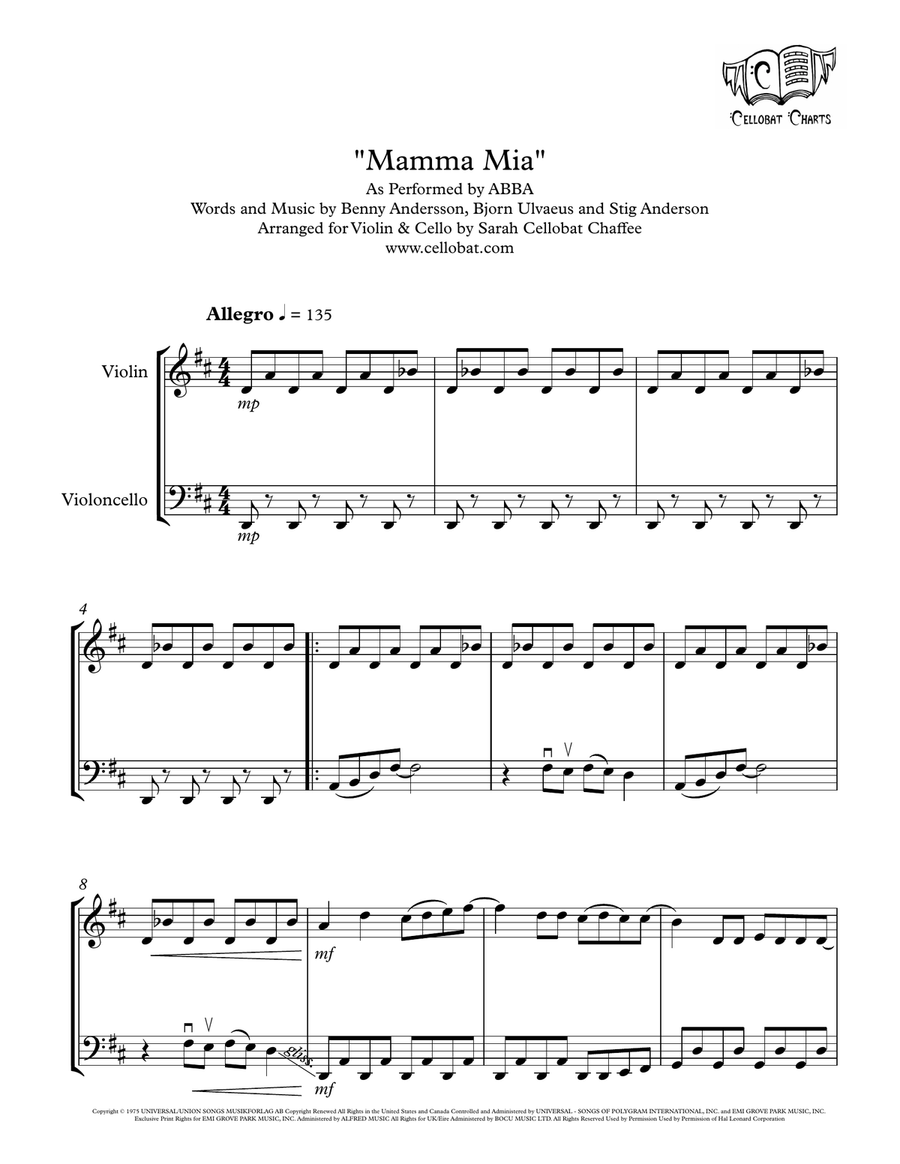Cello,Instrumental Duet,Violin - Level 3 - Digital Download SKU: A0.526180 By ABBA. By Benny Andersson, Bjorn Ulvaeus, and Stig Anderson. Arranged by Sarah Cellobat Chaffee. Contemporary,Film/TV,Pop,Wedding. 8 pages. Sarah Cellobat Chaffee #5801713. Published by Sarah Cellobat Chaffee (A0.526180). Mamma Mia was recorded in 1975 for ABBA's third studio album, and at the time, the group had gained some moderate success but weren't sure how certain their future would be. Fortunately, when this song was released as a single in Australia, it remained at #1 on the charts for ten straight weeks and boosted the group's popularity worldwide. These days, the song isn't just legendary as a great catchy pop song, but as an inspiration for both a musical and a movie of the same name! The massive popularity of Mamma Mia means that this arrangement for violin & cello duet is a guaranteed success in your gig books, and you're sure to get your audience singing along! This chart's bouncy pop beat, lyrical back-and-forth, and sing-along-able choruses make it just as much fun to play as it is to listen to. Great for weddings, receptions, parties, corporate events, solo & ensemble contests, or any occasion that needs some upbeat pop. This chart is rated Intermediate and will be playable for students and easily sightreadable for professionals. Sarah âCellobatâ Chaffee is an in-demand acoustic & electric cellist and string arranger. Currently, she performs with legendary rock band Aerosmith in their âDeuces Are Wildâ residency show, and she is the principal cellist for the Raiders House Band, playing for a crowd of 60,000 at all of the team's home games. She also plays with many other groups including Premiere Wedding Music, Bella Electric Strings, the Femmes Of Rock, and David Perricoâs Pop Strings Orchestra. Sarah has performed and recorded with numerous other artists including Disturbed, Mötley Crüe, Celine Dion, Halsey, Michael Bublé, Sarah Brightman, and Lady A. She is the exclusive arranger for a number of award-winning wedding and event companies all across the United States, including Premiere Wedding Music, Las Vegas Music Oasis, and Impulse Strings, and she has created custom arrangements for many other ensembles all over the world. You can find her at:http://www.cellobat.comhttp://www.instagram.com/cellobathttps://www.youtube.com/@Cellobat
